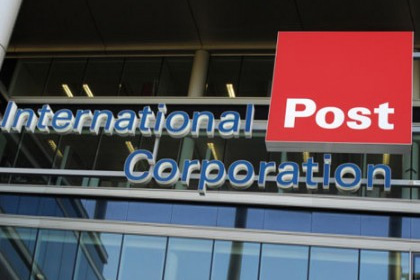
IPC:The SMMS programme is a true success story of posts collaborating towards a global common goal

On 8 November, the IPC Board approved the 2023 results of the IPC Sustainability Measurement and Management System (SMMS). Postal operators involved have collectively saved 39% of CO2 emissions since 2008.
The results show a solid increase in the overall Sustainability Management Proficiency (SMP) score for all the posts participating in the programme.; with Íslandspóstur and Malta Post joining the SMMS programme in 2023, data from 2008 to 2022 has been restated. Posts are making good progress towards their 2030 targets regarding CO2 emissions reduction, renewable energy use, alternative fuel vehicles and waste separation for recycling or reuse. The SMMS results are published in IPC’s annual Postal Sector Sustainability Results, available as an online-only report.
Holger Winklbauer, IPC Chief Executive Officer commented: “The SMMS programme is a true success story of posts collaborating towards a global common goal. We are delighted to see more and more posts want to take part in this initiative, demonstrating their willingness to work together to reduce their carbon footprint and their motivation to learn from each other. The SMMS programme keeps evolving and improving, and the postal collaboration shows the power we have as a group to act together towards a sustainable future.”
Continuous improvements towards 2030 joint targets
As part of their collective 2030 targets, posts on five continents participating in the SMMS programme strive to have 75% of energy used in their buildings originating from renewable sources, 50% of their vehicle fleet composed of alternative fuel vehicles, with at least 25% of the total fleet to be electric vehicles, and 75% of group waste to be recycled or reused.
The group has successfully increased its use of renewable electricity from 14% of total electricity use in 2012 to 36% in 2023. The SMMS group has grown its collective alternative fuel vehicle fleet from 65,000 (12% of total vehicles) in 2012 to 182,000 (27,90%) in 2023, and 144,000 (22%) are now Electric vehicles (EVs).

In 2023, the group reused or recycled an impressive 69% of total non-hazardous waste, a 14% increase since 2019, and moving positively towards the 75% target.
Postal operators continue to reduce CO2 emissions
In 2023, posts reported a 39% reduction in annual Scope 1 and 2 carbon emissions compared to a 2008 baseline. Since 2008, the group’s cumulative reduction in scope 1 and 2 emissions now equals 31.7 million tonnes CO2. For full scope 1,2 and 3 reporting please refer to the online report.
In 2020, a new 2030 target was set for absolute carbon emissions – to reduce collective scope 1 and 2 emissions by 50% compared to a 2019 baseline. In 2023, posts reported a 12.0% decrease in emissions compared to 2019. This was great progress for the group as they recorded a 6.8% decrease at the end of 2022. This equates to more than 700,000 tonnes of CO2.
(1) In reporting year 2023, participating posts were: An Post, Austrian Post, Australian Postal Corp, bpost, Correos, Croatian Post, CTT Portugal Post, DHL Group, Íslandspóstur, La Poste Groupe, Malta Post, New Zealand Post Group, POST Luxembourg, Poste Italiane, Posten Bring, Posti, PostNL, Omniva, Pos Malaysia, PostNord Denmark, PostNord Sweden, Royal Mail Group Ltd., South African Post Office, Swiss Post, United States Postal Service.
The Sustainability Measurement and Management System (SMMS)
The IPC SMMS programme was launched in 2019 to address the sustainability objectives of the postal sector for the next ten years, aligned with the Sustainable Development Goals (SDGs). It expands on the 2009-2019 Environmental Measurement and Monitoring System (EMMS) programme, which focused on reducing carbon emissions, and broadens the remit to the seven sustainability focus areas most relevant for the postal sector: Health and safety, Learning and development, Resource efficiency, Climate change, Air quality, Circular economy and Sustainable procurement. These focus areas are aligned with the following UN SDGs, identified by our stakeholders and SMMS participants as most relevant to the postal sector:
SDG 8 – Decent work and economic growth
SDG 9 – Industry, innovation and infrastructure
SDG 11 – Sustainable cities and communities
SDG 12 – Responsible consumption and production
SDG 13 – Climate action
As such, the SMMS programme is designed to further the postal sector’s contribution to global sustainable development, focusing on the areas in which it can have the most impact.











